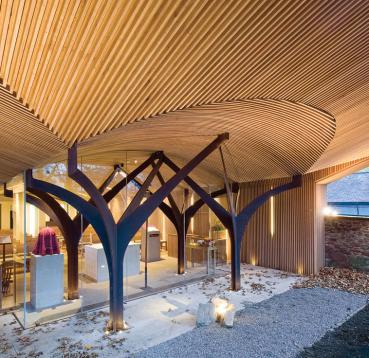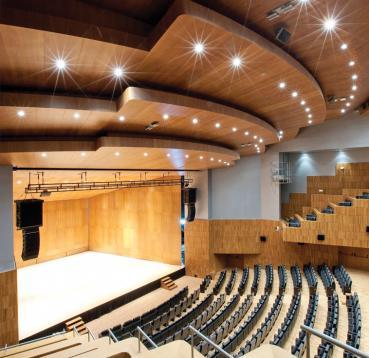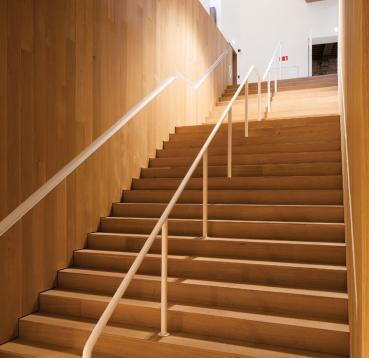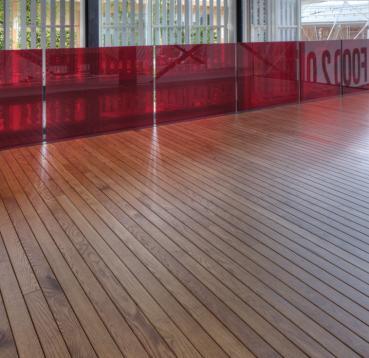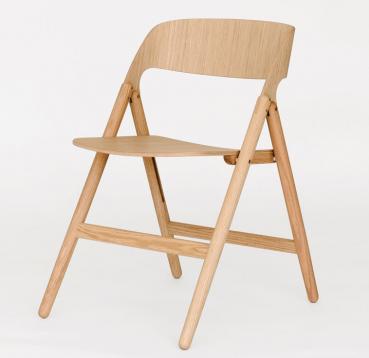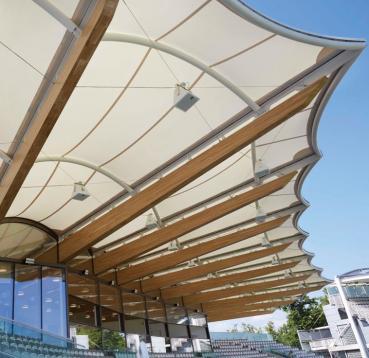-

-
HEYDAR ALIYEV INTERNATIONAL AIRPORT
Turkish studio, Autoban, specified American white oak for the experimental interior architecture they created at Azerbaijan’s landmark airport terminal.
-
-
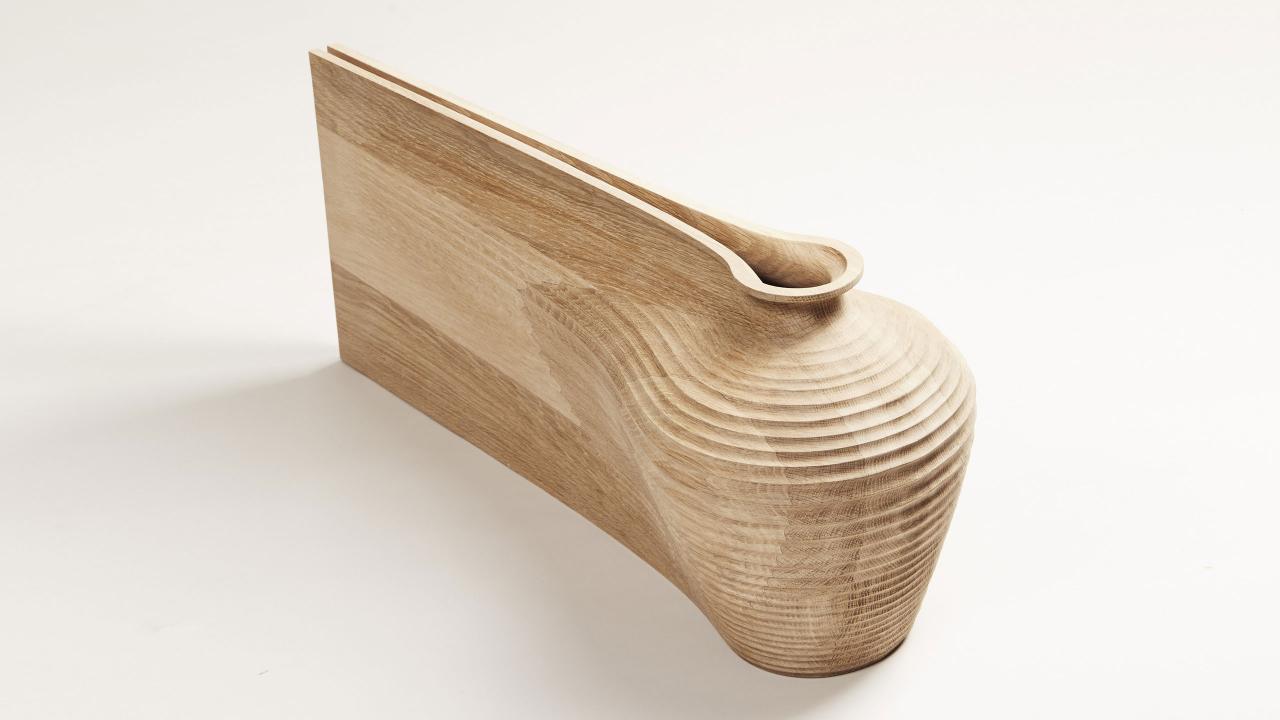
-
VES-EL
Ten leaders in design commissioned ten emerging designers to create the object they have always wanted for The Wish List, a project initiated by AHEC. Ves-el was the late Zaha Hadid’s wish, designed and made for her by Gareth Neal using American white oak.
-
-
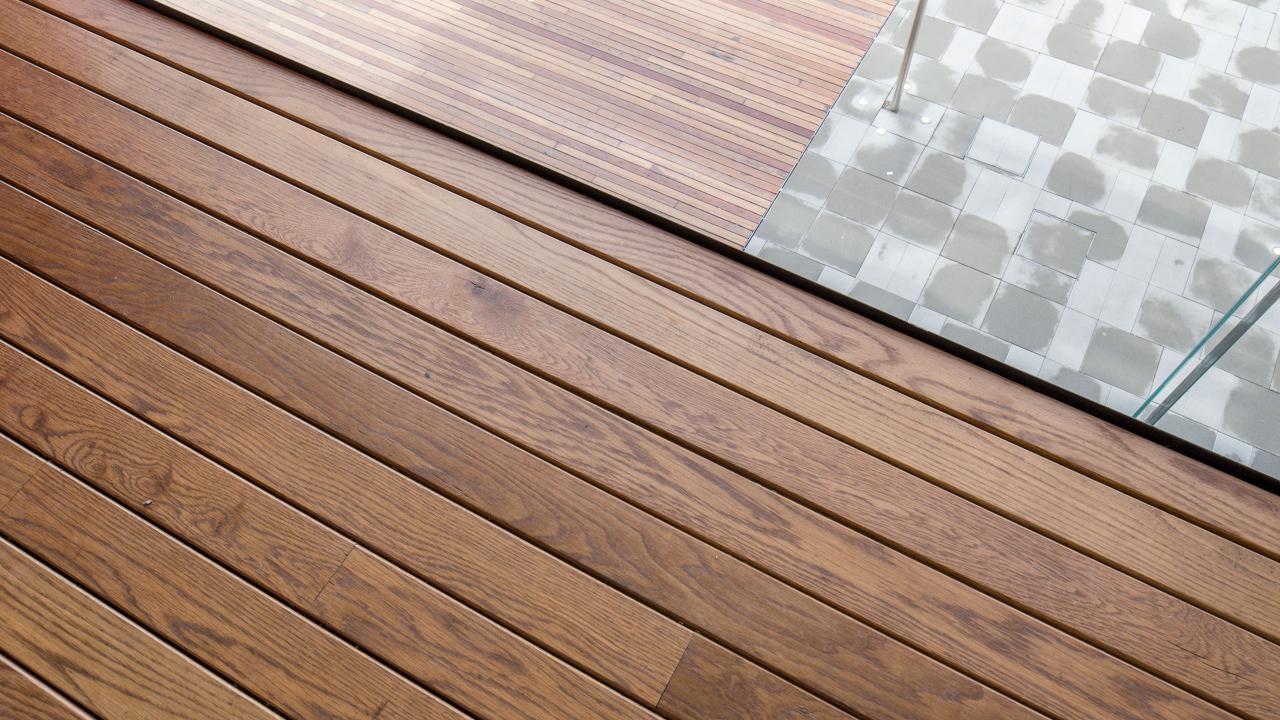
-
MILAN DECKING
Architect James Biber specified American white oak for the deck of his USA pavilion at the Expo Milano as it is strong, hard and has good machining properties.
-
American white oak
American white oak is one of the most popular species from the U.S. hardwood forests in export markets – and is unique to North America.
Latin Name
Quercus species, mainly Q. alba
Other Common Names
northern white oak, southern white oak
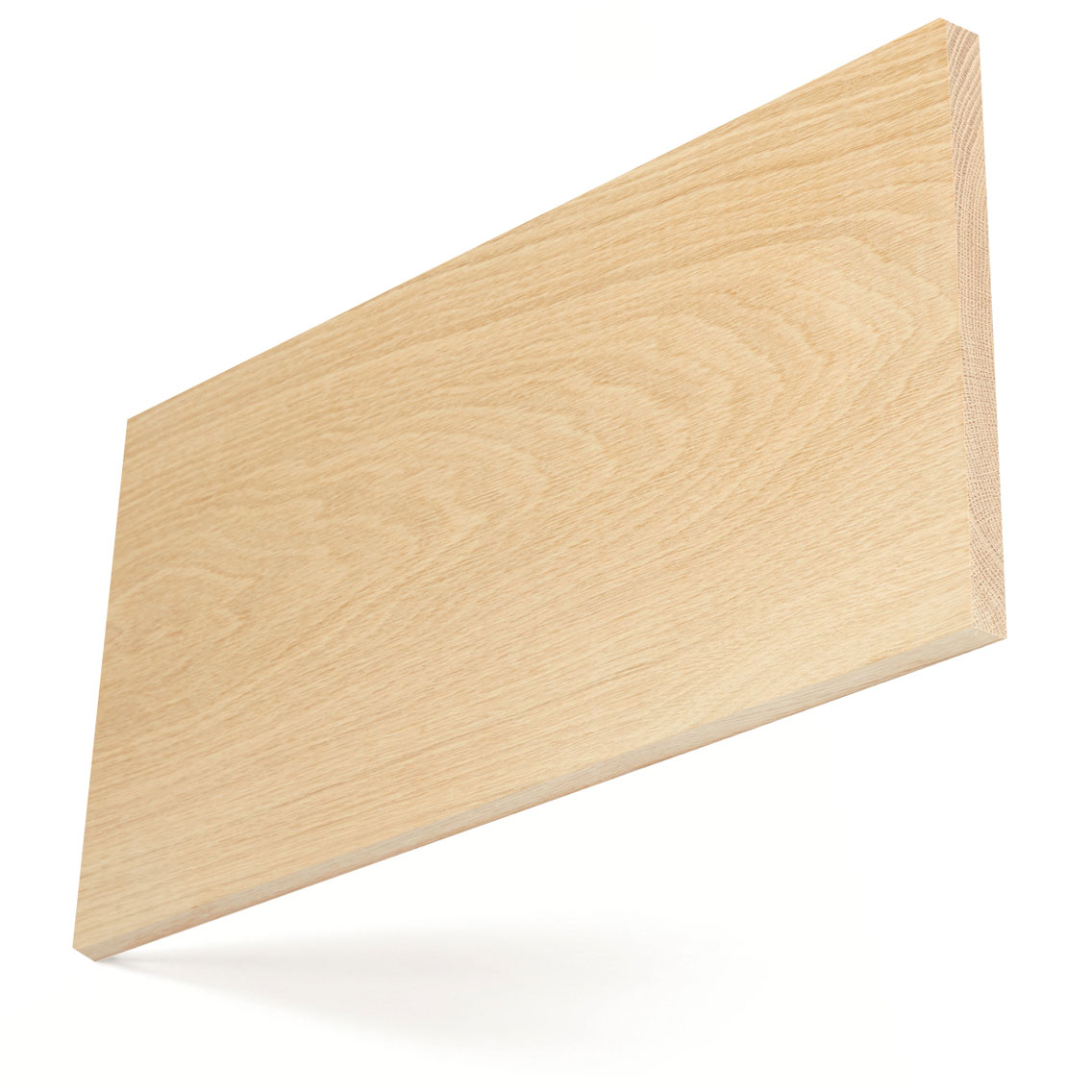
Forest Distribution
White oak trees grow exclusively in North America and are widely distributed throughout most of the eastern United States in mixed hardwood forests. As with red oak there are many sub-species, all within the white oak classification, and together form the most common species group accounting for about 33% of the American hardwood resource. The trees are tall and easily identified by their rounded leaf form, turning brown in the fall. White oaks also grow from north to south; some high in the mountains and others on low land giving rise to different characteristics. Thus there are significant variations in white oaks depending on location, in particular between the slower grown northern and faster grown southern trees. As with red oaks, they are regarded as sustainable for both domestic andexport consumption.
FOREST GROWTH
FIA data shows U.S. white oak growing stock is 2.26 billion m3, 15.5% of total U.S. hardwood growing stock. American white oak is growing 40.1 million m3 per year while the harvest is 20.1 million m3 per year. The net volume (after harvest) is increasing 20.0 million m3 each year. U.S. white oak growth exceeds harvest in all major supplying states.
LCA Tool
seconds
Material Availability
White oak from the USA is readily available as sawn lumber and veneer, in a wide range of grades and sizes. Due to lengthy drying times not all suppliers offer thicker lumber stock (10/4" & 12/4") but it is available in limited volumes. In the north the sapwood tends to be less than in the south where, due to the shorter growing season, the wood is grown faster with more open grain and texture. White oak may be sold on the basis of 'northern' and 'southern', but this may be an over-simplification of the differences according to growing location.
Wood Description
- White oaks have an attractive grain, similar to many other oaks grown globally. In general the sapwood of white oak is whitish to light brown and the heartwood is normally light to mid or even dark brown. The difference between the sapwood and heartwood of white oak is less distinct than in red oak. The wood of white oaks is mainly straight-grained with medium to coarse texture.
- The wood is figured with medullary rays – a feature of all true (Quercus) oaks – and these in white oak are longer than those of red oak; thus producing a more pronounced figure. The heartwood wood is not porous, so is suitable for wine barrels and exterior use.
Mechanical Properties
American white oaks have excellent overall strength properties relative to weight, making them a preferred hardwood species for structural applications. The wood is hard and relatively heavy with good bending strength and compression strength but lower in stiffness. Structural testing carried out in Europe confirms that the white oak has greater inherent fibre strength than European oak. It has excellent steam bending capability. Being hard, stable when dry and easy to finish and stain, it is highly popular for furniture and flooring, especially in export markets.
To find out more about the mechanical properties of white oak read the full structural guide.
-
0.68
Specific Gravity (12% M.C.)
769 kg/m3
Average Weight (12% M.C.)
12,273 MPa
Average Volume Shrinkage (Green to 6% M.C.)
104.804 MPa
Modulus of Rupture
12,273 MPa
Modulus of Elasticity
51.299 MPa
Compressive strength (parallel to grain)
6,049 N
Hardness
Oiled / Un-Oiled Appearance


Performance
- White oak lumber machines well, with good performance in nailing and screwing, although pre-boring is recommended. It glues well (although the inclusion of primers are recommended for structural gluing) and can be stained and polished to a very good finish. The wood has to be dried slowly and carefully to avoid degrade and it has high differential radial and tangential shrinkage so can be susceptible to movement in performance in humid conditions. It has excellent drilling and finishing properties.
- The heartwood is resistant to decay and resistant to preservative treatment.
Main Uses
This sustainably managed wood from natural forests of North America, with excellent environmental credentials, is a key species in many export markets. Its main uses are in furniture, flooring, doors, architectural joinery and mouldings and kitchen cabinets. It is also used in certain applications for construction, including structural glue-laminated beams, and other specialist applications.
Examples of Use

